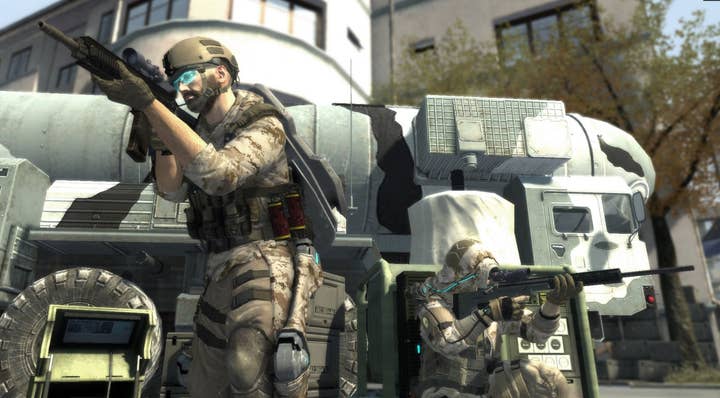Retail isn't going away - Ubisoft digital head
Chris Early says brick-and-mortar does some things better than digital; Ubi is experimenting with episodic titles
Ubisoft's VP of digital publishing sees a day when the publisher's digital revenues will surpass its retail business, but he also sees a limit to how far the balance between the two will tilt. Early discussed the subject with GamesIndustry International at the Electronic Entertainment Expo.
"The underlying question is, 'Is retail going away?,'" Early said. "No. And maybe that's funny coming from a digital guy, but I think retail's a strong part of our industry and it will continue to be so. Over time, when it goes to 50-50 or maybe beyond, will some stores close? Probably, just like some record stores closed. Maybe the store experience will morph. Maybe you'll see more of an Apple-type experience store where you're able to do things, but I don't think it'll go completely away."
Early said the reasons for that fall into a few different categories, from consumer behavior to technical limitations to one of the biggest hurdles in the digital world: discoverability.
"The physical store is a well-designed mechanism for discovery," Early explained. "You have expert help right there, a wide variety of products you can go through relatively quickly. That's hard to do still on a console or a PC. There's lots of content, but how do you easily discover what's the best thing to do? We haven't solved that."
Of course, digital has a number of advantages over retail, not the least of which is its ability to support non-traditional business models. One such model is episodic gaming, which saw a breakout success recently with Telltale Games's Game of the Year-winning series The Walking Dead.
"I will say we're definitely experimenting down that [episodic] path, but not to necessarily make a half-priced product to start with."
Chris Early
"The episodic model's been talked about for a long time, but the challenge comes to one of investment," Early said. "How much do you invest in the structure of the building and only furnish a floor at a time? We've still built a 60-story building, and if we only deliver three stories, I still have that infrastructure I built. It's solvable at some point. Even look at Telltale, that took them several iterations to get to that place, and some games that didn't work that well helped fund that engine to get to the place they are today."
As for when Ubisoft might embrace episodic gaming, Early suggested that from a certain perspective, it already has.
"I will say we're definitely experimenting down that path, but not to necessarily make a half-priced product to start with," Early said. "Look what we just did with Far Cry 3: Blood Dragon. We took the entire Far Cry 3 engine that we just sold for $60, made a five-hour game and sold it for $15. And it sold like mad. People loved it."
The rise of digital gaming has also given publishers more ways to monetize players. Whether it's with free-to-play games or downloadable content for premium titles, the industry focus is shifting such that the number of boxes a company shipped to stores is telling less and less of the overall story. At the same time, average revenue per user (ARPU) has become an increasingly significant metric as publishers realize some players are willing to go far above and beyond the $60 threshold of the retail space.

While Early said Ubisoft pays close attention to ARPU, it has tried to minimize player discontent while doing so. He noted that in the free-to-play Ghost Recon Online, players never need to part with real money to make their way through the game. Those willing to spend money may be able to buy experience boosts and cosmetic changes to their characters, but the developers didn't want to drum up revenues at the expense of player satisfaction.
"We've been very careful to make sure the players don't feel nickel-and-dimed," Early said. "And it's probably resulted in us being a bit conservative on that end."
As for DLC, Early noted that increasing the ARPU on $60 retail games helps to pay for the costs of AAA game development. That's a problem Ubisoft is also addressing from the other end of the transaction, as Early said the company works to keep costs down where it can. For example, its multi-studio development process means a number of the developers for a hit franchise like Assassin's Creed are located in places where they have a lower cost structure than the franchise's lead developer, Ubisoft Montreal.
"One of our designers said it best when I was talking to him the other night. He said, 'We respect our players' gaming time.' And we do that by delivering strong entertainment value," Early said.
Interview conducted by James Brightman.









